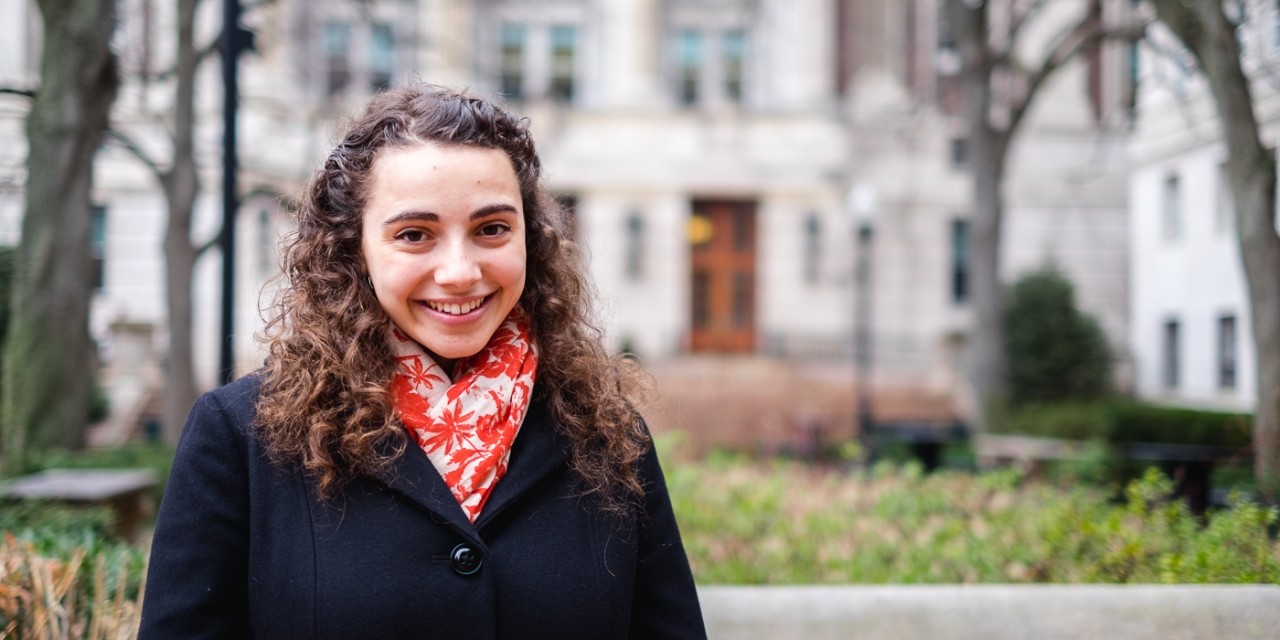Isabella Livorni, PhD Candidate in Italian

Where did you grow up?
Madison, WI, and Sesto Fiorentino, Italy.
What drew you to your field?
I grew up bilingual, living between Italy and the US. When I began college at Barnard, I missed speaking Italian every day with my family, so I started taking Italian literature classes. I ended up liking them so much that I decided to add an Italian major to my Music major. After graduating, I missed reading, researching, and writing, so I applied to graduate school. I was fortunate enough to have the opportunity to come back to Columbia and continue working with the professors who had been my first mentors during my undergraduate years.
How would you explain your current research to someone outside of your field?
My research focuses on the intersection of poetry, music, and multilingualism/translation in Italian literature. I’m interested in a number of different periods, but right now I'm focusing on Amelia Rosselli, a trilingual poet and musician active from the late 1950s to the late 1990s. I have been mainly examining the ways that changes in musical notation (specifically graphic notation) affected her poetry, causing a merging of the poetic text and the musical score.
What is your favorite thing about being a student at Columbia GSAS?
I have been so lucky to have wonderful colleagues and a great spirit of collaboration in my department. My colleagues’ different backgrounds and formations are helpful: I learn so much from them, and they help me pinpoint the gaps in my knowledge and try (as much as possible!) to fill them in.
What resources or opportunities that Columbia provides have been most valuable to you?
The libraries are amazing! The librarians I have encountered here have been very helpful to me in my research, but especially Nick Patterson, the music librarian, who is always available to help students find anything at all.
Is there a common misconception about a topic in your field that you wish you could correct?
I encounter common misconceptions about Italian culture dishearteningly often, and sometimes I even see them seep into scholarship—but there are too many to enumerate, so I'll steer clear of listing those here and stick to literature. In terms of literature, I have a bone to pick with the way Dante is sometimes taught: since people often only read Inferno, there are many misconceptions regarding the Divine Comedy—mainly that it is a pessimistic text, driven by the author's own vindictive fantasy. The Divine Comedy is, in many senses, a beautiful, mystical, moving text, and Purgatory and Paradise show that very clearly!
Who are your favorite writers?
Amelia Rosselli, Roberto Bolaño, Emmanuela Carbé, Roman Jakobson, Hannah Sanghee Park, Dante Alighieri… The list goes on.
Who are your heroes in real life?
My mom! She moves through the world with kindness, compassion, and honesty, and the way that she cares so deeply about the people around her—family, friends, colleagues, even just people on the street—makes my heart feel so full.
Where is your favorite place to eat on/around campus?
I will always hold a special place in my heart for the Hungarian Pastry Shop, where my colleagues and I have our traditional Wednesday morning breakfasts.
